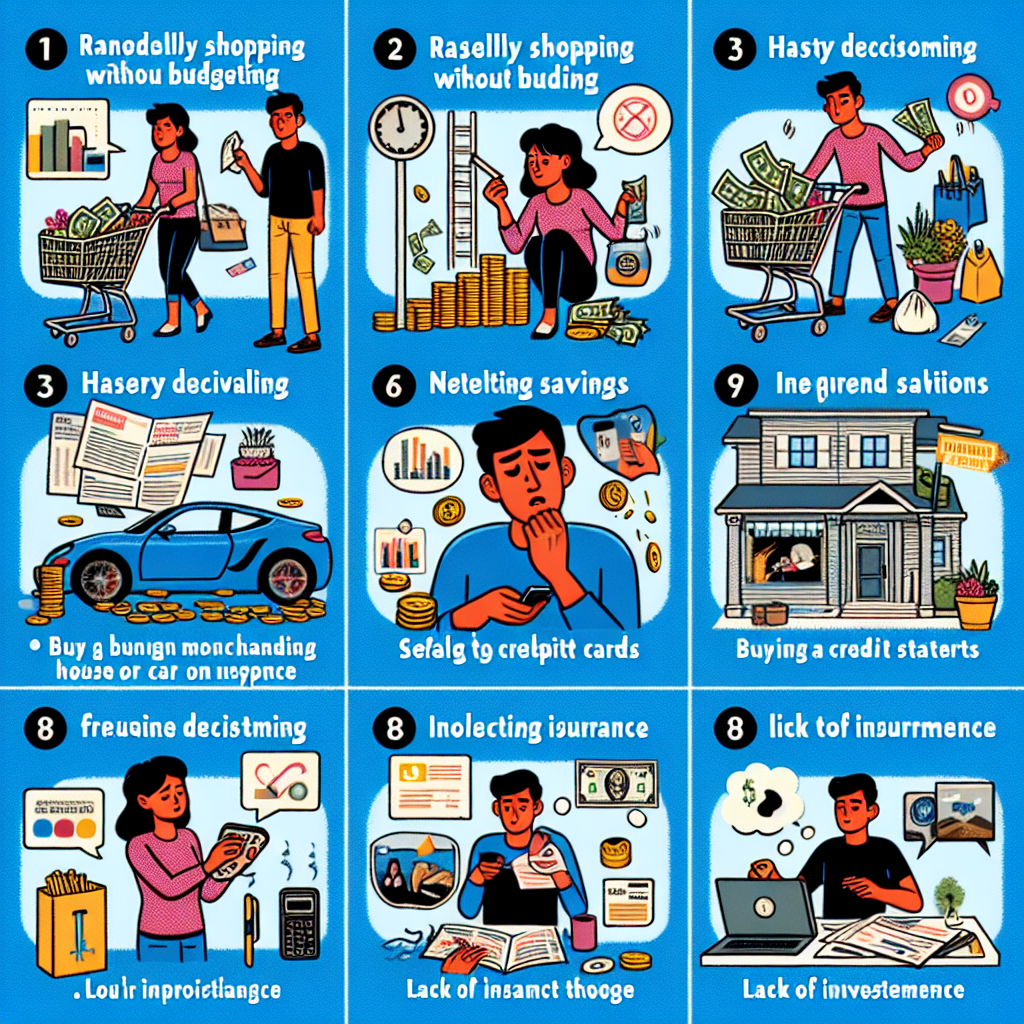8 Financial Habits You Might Have If Your Parents Didn’t Teach You About Money
“`html
8 Financial Habits You Might Have If Your Parents Didn’t Teach You About Money
Financial literacy is a crucial life skill that often begins at home. However, not everyone grows up with parents who impart financial wisdom. This lack of early education can lead to certain financial habits that may not be beneficial in the long run. In this article, we explore eight financial habits you might have if your parents didn’t teach you about money, supported by examples and statistics.
1. Living Paycheck to Paycheck
One of the most common financial habits is living paycheck to paycheck. Without guidance on budgeting and saving, many individuals find themselves spending their entire income each month, leaving little room for emergencies or future investments.
- According to a 2022 survey by CareerBuilder, 78% of U.S. workers live paycheck to paycheck.
- Without a financial cushion, unexpected expenses can lead to debt accumulation.
2. Lack of Budgeting Skills
Budgeting is a fundamental financial skill that helps manage income and expenses. If your parents didn’t teach you how to budget, you might struggle to track your spending and prioritize financial goals.
- A 2021 study by the National Foundation for Credit Counseling found that only 41% of adults use a budget.
- Effective budgeting can prevent overspending and help achieve financial stability.
3. Impulse Spending
Impulse spending is another habit that can develop without early financial education. The lack of understanding about the value of money and the importance of saving can lead to unnecessary purchases.
- Research by Slickdeals in 2020 revealed that Americans spend an average of $183 per month on impulse buys.
- Impulse spending can derail financial goals and lead to buyer’s remorse.
4. Avoiding Financial Planning
Without parental guidance, financial planning might seem daunting or unnecessary. This can result in a lack of preparation for future needs, such as retirement or children’s education.
- The Employee Benefit Research Institute reported in 2021 that 45% of Americans have less than $25,000 saved for retirement.
- Financial planning is essential for long-term security and peace of mind.
5. Accumulating Debt
Debt accumulation is a significant issue for those who lack financial education. Without understanding interest rates and repayment strategies, individuals may find themselves overwhelmed by debt.
- The Federal Reserve’s 2023 report indicated that U.S. consumer debt reached $4.5 trillion.
- Learning to manage debt is crucial for financial health and creditworthiness.
6. Neglecting Savings
Saving money is a habit that often requires early encouragement. Without it, individuals may prioritize spending over saving, leading to financial insecurity.
- A Bankrate survey in 2022 found that 25% of Americans have no emergency savings.
- Building a savings habit can provide a safety net for unforeseen circumstances.
7. Poor Credit Management
Understanding credit is vital for financial success. Without parental guidance, individuals may misuse credit cards or fail to build a good credit history.
- Experian’s 2023 report showed that the average FICO score in the U.S. is 714, but many struggle with lower scores due to poor credit management.
- Good credit management opens doors to better financial opportunities.
8. Lack of Investment Knowledge
Investing is a powerful tool for wealth building, but without education, many shy away from it. This can result in missed opportunities for financial growth.
- A 2021 Gallup poll found that only 55% of Americans own stocks, indicating a gap in investment participation.
- Learning about investments can significantly enhance financial prospects.
Conclusion
Financial habits are often shaped by early experiences and education. If your parents didn’t teach you about money, you might find yourself grappling with some of these habits. However, it’s never too late to learn and improve your financial literacy. By recognizing these habits and taking proactive steps to address them, you can pave the way for a more secure financial future. Remember, financial education is a lifelong journey, and every step you take towards understanding money better is a step towards financial empowerment.
“`




